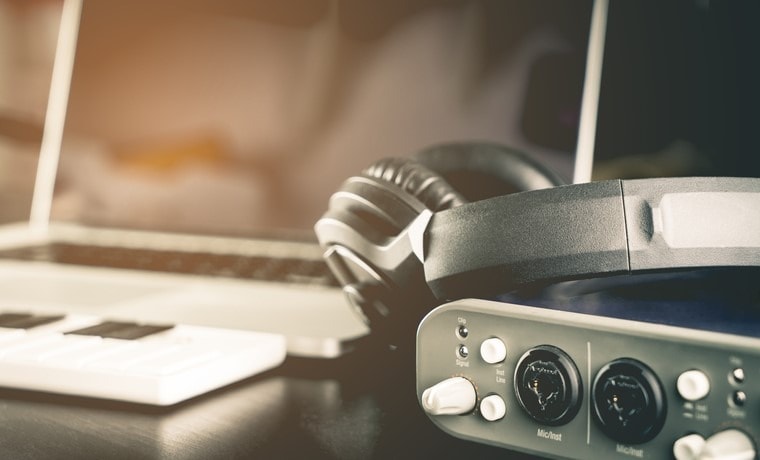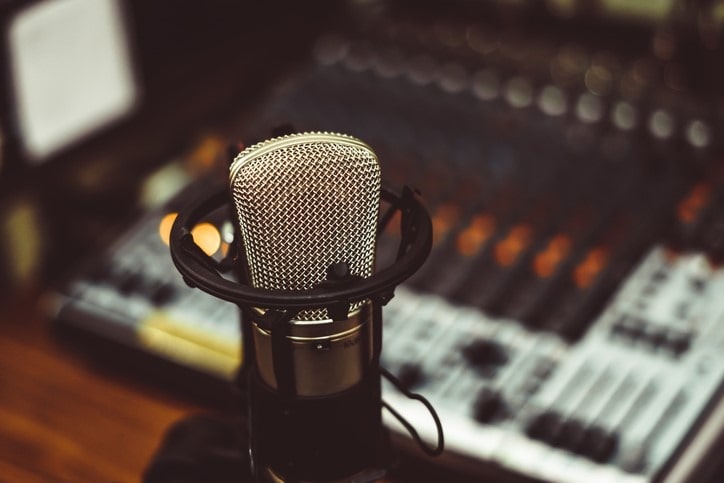/ News Posts / Considerations for Supporting Students’ Independent Projects
Considerations for Supporting Students’ Independent Projects
NAfME Member Rachael Sanguinetti and Jonny Bonczyk
Students have musical interests that reach beyond the school curriculum. They create, perform, and respond to music in personal ways according to their individual interests. Music teachers can engage students in musical conversations, which can lead to students pursuing independent projects that allow them to interact with music in different ways. Having a music teacher involved can invite additional musical exchanges, explorations, creations, and learning for both parties. Further, such projects can support students in their music making beyond classroom walls. In this post, we (Rachael, a music teacher, and Jonny, a middle school music student) share our story about our current independent project.
This year Jonny began work on his first rap album, to be released online in a few months; Rachael, as Jonny’s current music teacher, assisted with the project. Jonny decided to start working on his album in September 2020. When he and his brother started messing around and free styling and he realized how much he enjoyed making music, he decided he wanted to make and produce music as his career. His goals as a musician and producer are to be the best he can be. With this album, he’s hoping to create something that will make people feel good when they listen to it. His goal for his first album is to reach one hundred sales. Rachael’s background with rap music was limited before this project. She rarely listened to it and knew very little about the genre, top artists, or some of the elements that are included in many rap songs.
We met twice a week for short periods of time to talk about Jonny’s work and review his progress. We discussed his musical choices and arrangements, music software, microphones, tonality, melodies, keyboard skills, rap artists, and rap culture. Along the way, Rachael learned a lot about popular rap artists and the complexities of rap music, and now listens to rap music with a deeper understanding. Jonny improved his keyboard skills, understanding of tonality, ability to write melodies, and skills using digital audio workspaces (DAWs).
Considerations for Teachers
Based on our experiences working together, separately, and with others, we recommend a few things for teachers to consider when engaging in these types of projects.
- Allow students to maintain ownership: These projects are personal and important to students, and teachers should remember that these are the students’ projects.
In these projects, teachers can serve as mentors and guides, but never the owner or leader of the project; the student owns the project. Teachers should be there to answer questions, offer guidance, make suggestions, and provide support through thoughtful inquiry. Examples of thoughtful inquiry include, “Can you tell me more about this section here—what was your thought process when making that musical choice?” “What would happen if it wasn’t there?” “What else could be done here?” Teachers should refrain from working on the project for students, doing portions for them (e.g., editing), directing the project, or telling students what to do next. Above all, teachers need to be supportive, even if they don’t personally “like” the music or musical style.
- Recognize that learning happens in both directions: Both teachers and students can grow musically through work on the project, and teachers should be open to learning from the students.
Teachers should strive to be lifelong learners, continuing to develop their knowledge about different music. Teachers can gain new knowledge when they work on projects related to unfamiliar genres and students can serve as teachers in many respects. For example, teachers may learn about a culture, popular artists, and elements of a musical style that they had never noticed before. We believe the best teaching comes from passionate teachers, and students can certainly be passionate teachers.
- Approach learning with genuine curiosity and an open mind: Teachers may be learning as they go, and teachers should approach the learning with genuine curiosity and an open mind.
As a music teacher, Rachael has, sadly, heard fellow educators state that they have little interest in the vernacular music of their students because it’s not music that they like. We believe music teachers should embrace all types of music and musical learning with an open mind and genuine curiosity, which includes assisting students on independent projects.
- Set goals and expectations given realistic constraints: Teachers often have busy schedules and should be honest and realistic about their time constraints.
For busy music teachers, it may feel daunting to take on a musical project with a student. Before agreeing to such a project, teachers should carefully consider their schedule and the students’ expectations/needs/desires to avoid overcommitting. Teachers should talk with students about how much support they feel they’ll need and what support the teacher can offer. Teachers should let students know how much time they have to work on the project each week, and how they can work together outside of meetings, which could include corresponding via email or video conference.
Final Thoughts
Potential benefits from these projects for teachers and students are extensive. Teachers can be pushed out of their comfort zones and learn something new. Saying to a student, “I don’t know but let’s find out together,” can help build meaningful connections and foster mutual respect. Students can gain experience in new areas of music through their projects and learn new musical skills while expanding their musical vocabulary and overall understanding of musical concepts. Because independent projects are so valuable–for students in music programs, those who have not yet found their place in course offerings, and teachers–we encourage all teachers, if given the opportunity, to engage in independent music projects with students.
About the authors:
 NAfME member Rachael Sanguinetti is an educator, student, and researcher. She teaches general music and chorus at Allendale Columbia School and is a PhD student at Eastman School of Music. Her research interests include popular music education and student-centered learning in the general music and choral classroom. Follow her on Instagram @mssangteachesmusic and on LinkedIn.
NAfME member Rachael Sanguinetti is an educator, student, and researcher. She teaches general music and chorus at Allendale Columbia School and is a PhD student at Eastman School of Music. Her research interests include popular music education and student-centered learning in the general music and choral classroom. Follow her on Instagram @mssangteachesmusic and on LinkedIn.
Jonny Bonczyk is an 8th grade student at Allendale Columbia School. He enjoys writing and listening to music. His favorite artists include Juice Wrld, Young Thug, Lil Baby, and Gunna. He also enjoys playing basketball.
Did this blog spur new ideas for your music program? Share them on Amplify! Interested in reprinting this article? Please review the reprint guidelines.
The National Association for Music Education (NAfME) provides a number of forums for the sharing of information and opinion, including blogs and postings on our website, articles and columns in our magazines and journals, and postings to our Amplify member portal. Unless specifically noted, the views expressed in these media do not necessarily represent the policy or views of the Association, its officers, or its employees.
January 22, 2021. © National Association for Music Education (NAfME.org)
Published Date
January 22, 2021
Category
- Ensembles
- Students
Copyright
January 22, 2021. © National Association for Music Education (NAfME.org)






